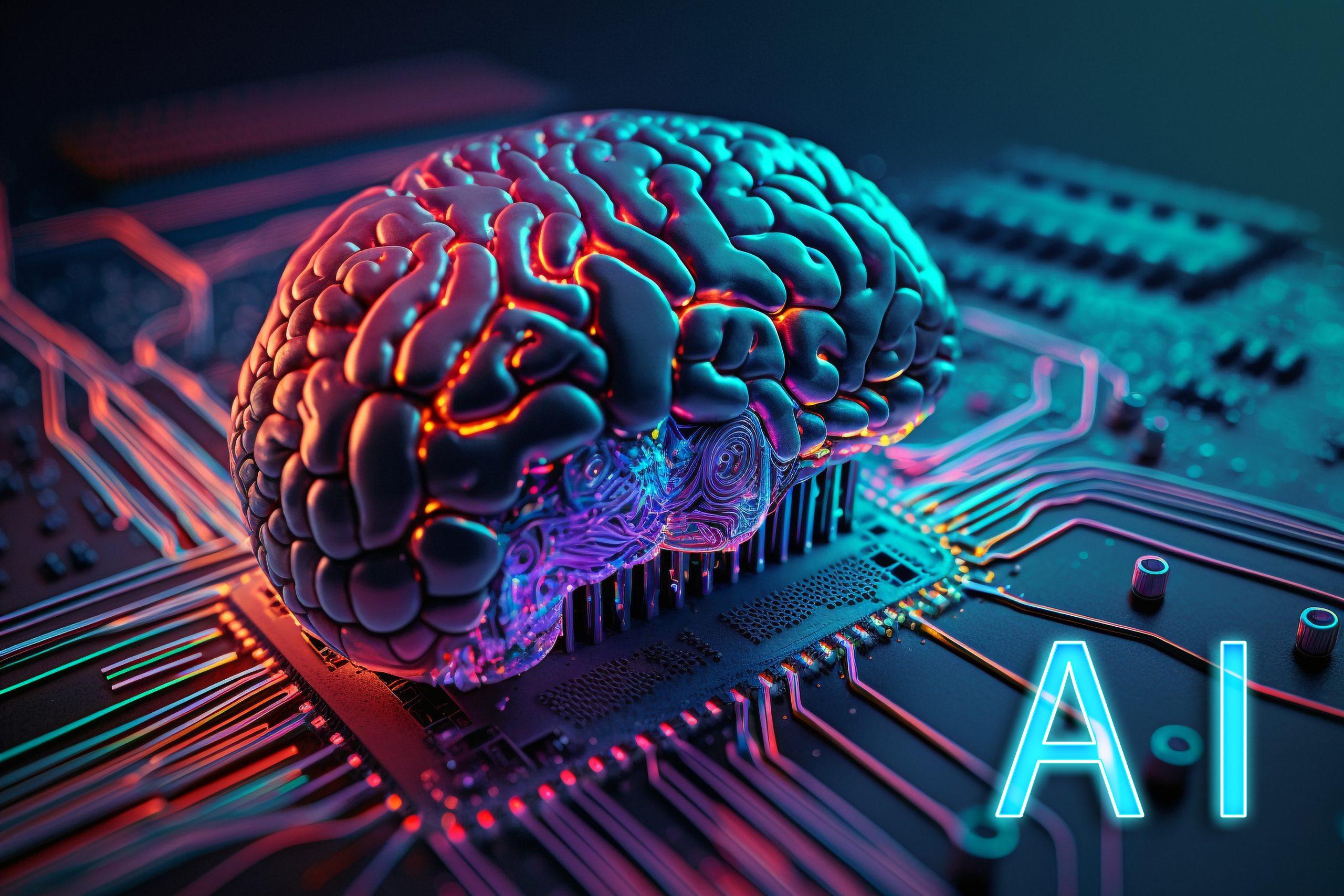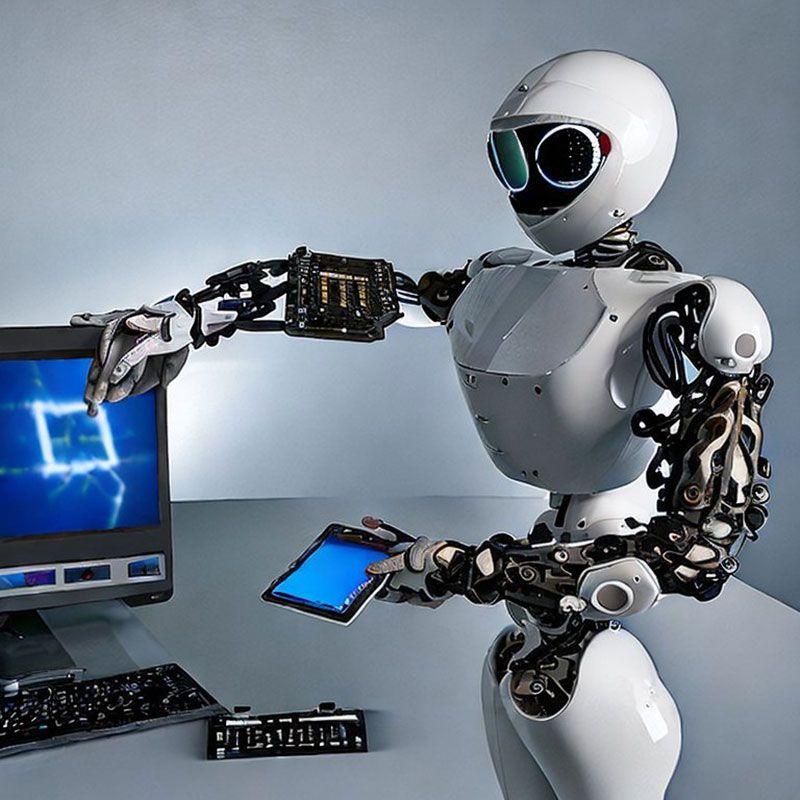Title: AI and Art: Evolution or Extinction?
Introduction:
In the labyrinth of contemporary debates, few topics kindle as much intrigue and polarized opinion as the role of Artificial Intelligence in the death—or rebirth—of art. To the uninitiated, this conjures images of robots wielding paintbrushes or computers composing symphonies, a future where creativity is outsourced to the algorithmic mind. But is AI really sounding the death knell for art, or is it breathing new life into creative expression? This article embarks on a journey through the intricate dance of AI with art and music, revealing a world where technology doesn’t quash creativity but collaborates with it to spawn unimaginable masterpieces.
AI in the Artistic Process: A New Palette of Possibilities
The influence of AI in art and music isn’t a tale of replacement but of augmentation and innovation. From AI-powered tools that can mimic the styles of van Gogh or Picasso to algorithms that can compose complex musical pieces evocative of Bach or Mozart, AI is expanding the artist’s toolkit rather than confiscating it.
- DeepArt and RunwayML beckon to visual artists, offering them the ability to blend styles across epochs and movements at the click of a mouse.
- AIVA and Amper Music stand as examples in the musical realm, providing platforms where melodies can be molded without the mastery of instruments.
Spotlight on AI-Generated Creativity: Beyond Human Boundaries
The marvels of AI-generated art and music challenge our very notions of creativity and authorship. Projects like Google’s Magenta and OpenAI’s Jukebox not only showcase the capacity of algorithms to generate stunning pieces of art and music; they shine a light on the partnership between human intention and machine efficiency.
The Creative Synergy: Enhancing Artistic Expression
This unfolding era of digital creation is not a narrative of AI versus artists but a synergy that magnifies expression beyond traditional limits. Imagine an artist or composer using AI to explore depths and realms previously unreachable, to experiment with and refine their work with partners that do not fatigue, forget, or falter.
- The benefits: AI opens doors to infinite creativity, breaking down barriers that once hemmed artists into corners of technical skill or stylistic familiarity.
- Challenges and Considerations: Yet, this new frontier isn’t without its ethical conundrums and philosophical dilemmas—questions of originality, authenticity, and the essence of human touch in art persist.
Conclusion: Unveiling the Future Canvas
As we stand at the crossroads of evolution or extinction, it becomes clear that AI in art and music isn’t a harbinger of demise but a catalyst for unprecedented innovation. This exploration into the fusion of AI with creative expression invites not just artists but all of us to ponder and participate in shaping a world where technology and creativity coalesce. Let this article serve as your launching pad into the boundless possibilities AI offers to art and music, nudging you to question, explore, and, most importantly, create.
By adopting an approachable yet insightful narrative, this article aims to demystify the complex interplay between AI and the creative arts. Through highlighting innovative AI tools, showcasing inspiring examples of AI-generated art and music, and addressing the transformative impact of these technologies, we aim to ignite curiosity and foster experimentation among artists, musicians, and creatives at the intersection of technology and art. In the realm of creative exploration, AI tools are not merely instruments of replication but are becoming essential collaborators that offer new layers of complexity and innovation in art and music. Tools like DALL-E, capable of generating vivid images from textual descriptions, and AIVA, an AI that composes emotional soundtracks, exemplify the vast potential for AI to augment creativity. These technologies are empowering artists and musicians to push beyond traditional boundaries, allowing for the creation of unique art and music that resonates with both depth and novelty. The development of platforms like RunwayML offers access to powerful AI algorithms, enabling creators from all walks of life to experiment with generative art, neural filters, and interactive installations that were once the domain of researchers and tech giants.
Amidst this groundbreaking fusion of AI with artistic expression, a crucial dialog emerges about the ethical landscape of creativity in the digital age. The concern that AI might dilute human creativity is juxtaposed with a celebration of new forms of collaboration between humans and algorithms. This relationship, rather than eclipsing the human element, amplifies it, introducing a symphony of possibilities where AI becomes a mirror reflecting our deepest creative impulses. Ethical considerations are at the forefront of this evolution, prompting discussions on authorship, agency, and the authenticity of AI-generated art. By navigating these waters with a thoughtful approach, artists and creators are discovering ways to maintain the integrity of human creativity while embracing the innovative potential that AI brings to the canvas and the score.
| AI Tool | Function | Application in Creative Fields |
| DALL-E | Image Generation from Text | Visual Art, Design |
| AIVA | Music Composition | Soundtracks, Performances |
| RunwayML | Generative Models | Interactive Art, Video Effects |
As AI continues to interlace with creative endeavors, charting new territories becomes an essential pursuit. The unique artistic voice of AI—once thought to be a mere shadow of human creativity—now stands as a testament to the untapped potential that lies at the intersection of technology and the arts. This is a journey not of replacement or diminishment but of enhancement and discovery, where AI serves as a catalyst for an expansive future brimming with unexplored artistic landscapes.
In Summary
As we reach the end of our exploration into the provocative question, “Is Artificial Intelligence killing art?”, it’s clear that this technological revolution is not the harbinger of the end times for human creativity, but rather a new chapter in the ever-evolving narrative of artistic expression. In the lines of code and neural networks, we find not just algorithms but a new kind of muse, one that offers artists and musicians an unprecedented palette of possibilities to create with.
AI in Art and Music: A New Frontier
- Innovative Tools: From AI-driven platforms that can generate complex visual artworks in seconds to software that composes original music pieces, the range of tools available to creators today is astounding. Each tool represents a door to a room filled with limitless potential, waiting to be explored.
- Inspiring Creations: We’ve showcased myriad examples of AI-generated art and music that not only match the depth and complexity of human-created works but also push the boundaries of what’s considered possible in these fields.
- Reshaping the Creative Landscape: These technologies are not replacing artists but are instead becoming their collaborators, helping to break down the barriers of traditional mediums and enabling the creation of new, hybrid forms of art and music.
Embracing the AI Muse
The journey through the intertwined paths of AI and creativity reveals a landscape teeming with innovation and inspiration. Artists and musicians, armed with AI tools, are not being overshadowed but are instead standing at the vanguard of a new creative revolution, one where the synergy between human intuition and artificial intelligence promises to unlock realms of artistic expression we’re only beginning to imagine.
In the hands of the creative, AI becomes more than just a tool; it becomes a partner in the dance of creation, challenging us to question and expand our definitions of art and music. The fusion of AI with human creativity is not a zero-sum game where one’s gain is the other’s loss but a symbiotic relationship that enriches both.
Looking Forward
As we look to the future, let’s not see AI as the end of art but as a new beginning. The real power of artificial intelligence lies not in its ability to mimic or replicate human creations but in its potential to inspire us to push beyond our perceived limits. By embracing AI in art and music, we open ourselves to a future filled with unimagined beauty and innovation.
In the spirit of exploration and creativity, we invite you, the artists, musicians, AI enthusiasts, and creative professionals, to experiment with these AI-powered tools. Let your curiosity lead the way as you delve into this new era of artistic creation. Remember, the future of art and music, enhanced by artificial intelligence, is not just about what machines can do; it’s about what we can do together.
In Conclusion
The question, “Is Artificial Intelligence killing art?” leads us to a resounding no. Instead, AI is breathing new life into the creative world, offering us a glimpse into an exciting future where art and music continue to flourish, evolve, and surprise us. Let’s step forward with open minds and creative hearts, ready to shape and be shaped by the art of the possible.
